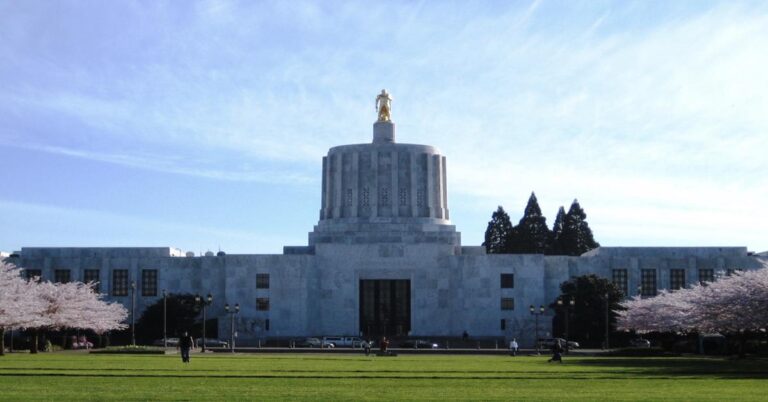Following a complaint filed by an anti-legalization activist in November, an organization that donated millions to support Montana’s marijuana reform measure is now under investigation.
Montana’s Marijuana Legalization Movement
On November 3, 2020, Montana residents turned out in droves to participate in what would be one of the most important elections in recent memory. Initiative 90 would move to legalize recreational cannabis, setting retail sales to begin in January 2022. Stranded in the middle of COVID-19, a pandemic that prompted economists to project Montana’s deepest recession in all of its history, voters saw a light at the end of the tunnel.
The economic successes of legal cannabis markets across the US have been clearly stated: The entirety of the market was valued at over $13 billion in 2019 – with only 11 adult-use states in the US at the time. That year alone, Colorado collected over $250 million in tax revenue to allocate toward supporting K-12 education, early literacy programs, building and renovating schools, and more.
Projected Revenue Generated by Recreational Marijuana Sales
In a report released by the University of Montana Bureau of Business and Economic research, it is projected that recreational marijuana sales would generate $236 million in tax revenue for Montana by 2026. Former budget director Dave Lewis commented on the report, “Montanans can create a new source of revenue that will help support important state programs for years to come. These initiatives could not be coming at a better time.”
Montana voters agreed, with 320,084 ballots – 57% of votes cast – counted in favor of legalization. New Jersey, Arizona, and South Dakota joined Montana in approving measures that enacted pro-cannabis changes. Montana’s Initiative 90 establishes the following policies:
- Legalizes the possession and use of one ounce or less of marijuana or 8 grams or less of marijuana concentrate by persons over the age of 21.
- Allows individuals to grow up to four marijuana plants and four seedlings for personal use, as long as plants are kept in a locked area, beyond public view, at their personal residence.
- The Montana Department of Revenue is responsible for regulating the transport, sale, and cultivation of cannabis in the state. Dispenser and provider applications start being accepted by January 1, 2022.
- Marijuana and marijuana-infused products will be taxed at 20% of the retail price. Tax revenue will be allocated to healthcare workers, drug addiction treatment, conservation programs, and more.
- Persons serving sentences for crimes that are no longer crimes under the initiative may request to be resentenced or have the conviction expunged.
New Approach Montana, the group largely behind Initiative 90, received major contributions from many sources. However, the source at the center of this controversy is the North Fund – a committee that donated more than $4.7 million to the cause.
Major Marijuana Campaign Contributor’s Alleged Crimes
The point of contention is why the North Fund exists. They were initially registered as an incidental political committee in Montana, which is defined as a group “that does not have the primary purpose of supporting or opposing candidates or ballot issues.”
Steve Zabawa, an auto dealership owner behind the anti-legalization group Wrong for Montana, submitted a complaint alleging that the North Fund is truly an independent committee, which is categorized as having “the primary purpose of supporting or opposing candidates or ballot issues but is neither a ballot issue nor a political party political committee.”
Since then, the Montana Commissioner of Political Practices (COPP) has formally begun to move toward prosecution against the North Fund, claiming that they’re improperly registered and should have a case be brought against the committee.
The reclassification from incidental to independent committee would require the North Fund to disclose its donors, an action that the group has repeatedly avoided doing. The North Fund argues that it should be able to file as an incidental committee because its involvement in Montana’s elections accounted for just a small portion of the group’s total costs in 2020, at less than even 10%. A spokesperson for the group has also clarified that the North Fund’s cause isn’t based in supporting candidates or ballot issues, but “to carry out public education and advocacy efforts regarding progressive policies . . . on a wide range of issues.”
COPP Jeff Mangan determined that a “wide range of issues” that includes operations affecting other states’ elections should be accounted for when determining the committee’s purpose and that, “sufficient evidence of a campaign practice violation exists.”
There are a variety of routes to take with the accusations. Firstly, Mangan’s findings state that a “civil fine is justified,” and it will be set with consideration for “matters affecting mitigation, including the cooperation in correcting the issue when the matter was raised in the complaint.”
In addition, the case will be escalated to the county prosecutor. If, for whatever reason, the county prosecutor declines the case, the COPP can seek legal action elsewhere. But despite campaign issues, Montana voters continuously give cannabis the green light, and practice violations from committees not directly linked to the measure won’t change that.
Campaign Challenges on the Road to Reform
The moment Initiative 90 was voted into law, Steve Zabawa was on the scene to give his thoughts. Following the election, he said in an email, “Wrong for Montana will sue tomorrow and defeat this measure, either at the District Court or Supreme Court of Montana. Either way, recreational marijuana is a pipe dream.”
Zabawa followed up on his threats by filing a lawsuit seeking to invalidate the vote, claiming that the initiative is unconstitutional. The case states that the proposal unlawfully appropriates tax revenue, violating a portion of Montana’s constitution. While the state Supreme Court failed to pick up the case back in October 2020, Wrong for Montana is now exploring their options in the lower court adjudication process.
In any case, the residents of Montana have already cast their votes, and the result is loud and clear: LEGALIZATION. Zabawa’s lawsuits, like the COVID-19 challenges that complicated signature collecting in early 2020, are just another hurdle for the pro-cannabis movement to leap.
Additional Resources:
At The Weed Blog, we strive to produce the latest online news resources regarding marijuana. We also review various strains of cannabis or other edible counterparts. We are committed to helping you find valuable information about marijuana on our website. With marijuana laws constantly changing, learn from us what you can do to promote activism in your area. Otherwise, consider these other top-tier articles regarding cannabis:
1 in 3 Americans Now Live in a State Where Recreational Marijuana is Legal



























